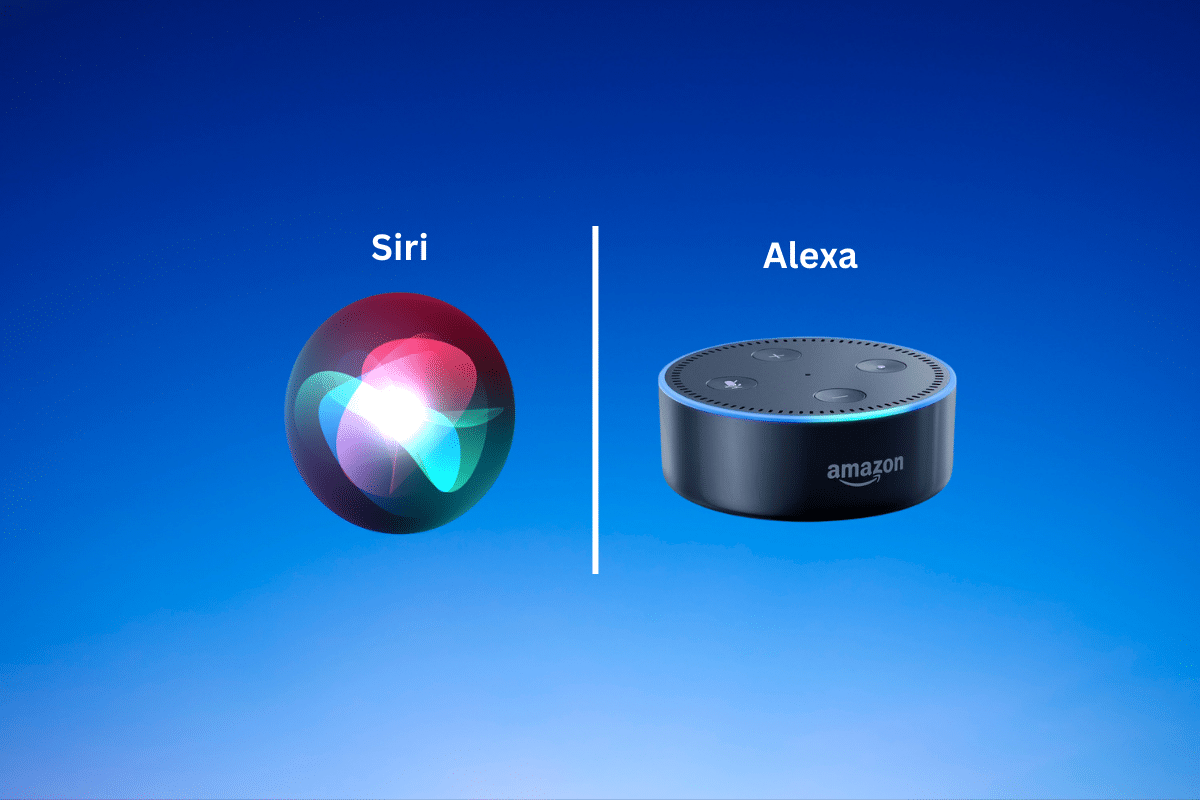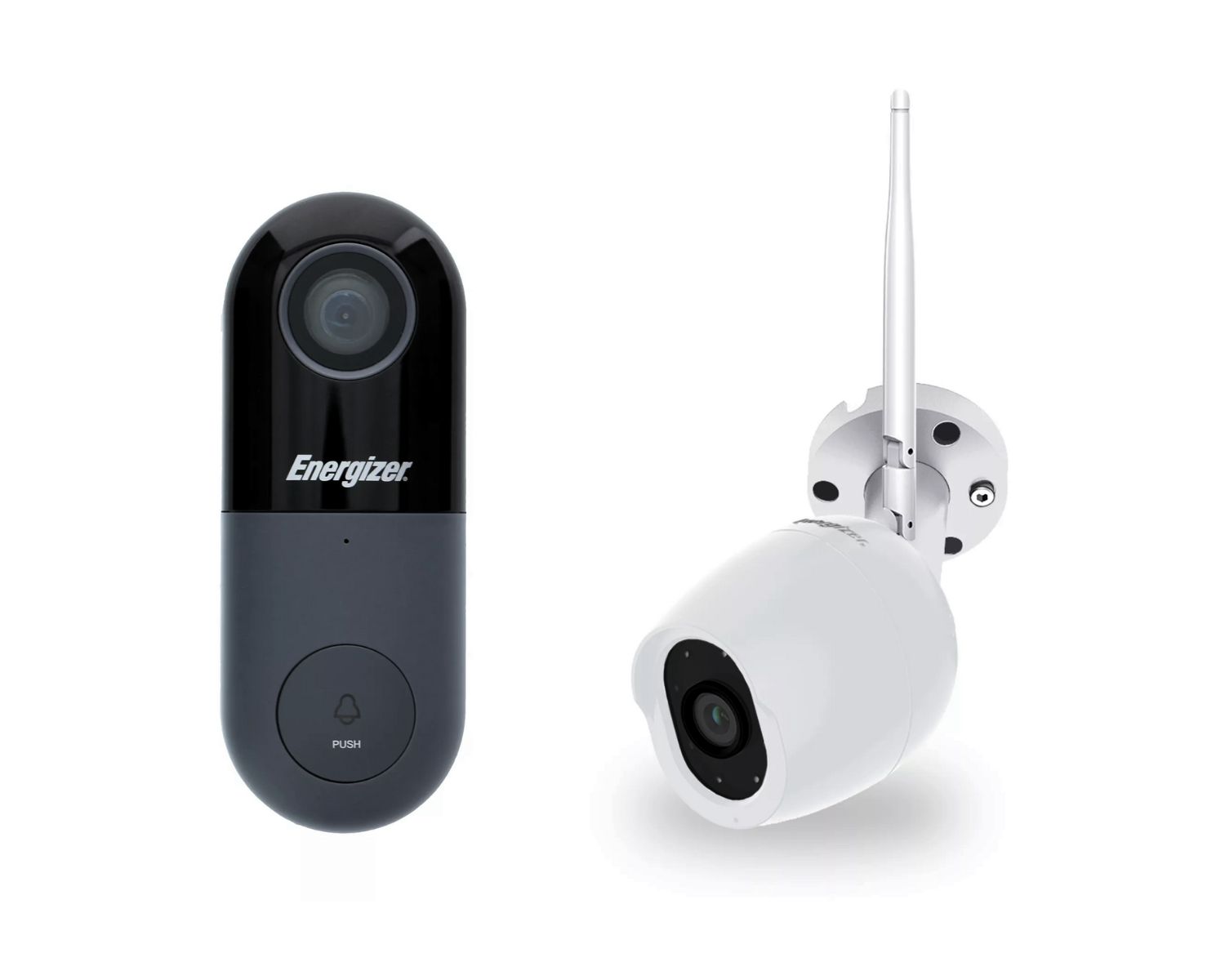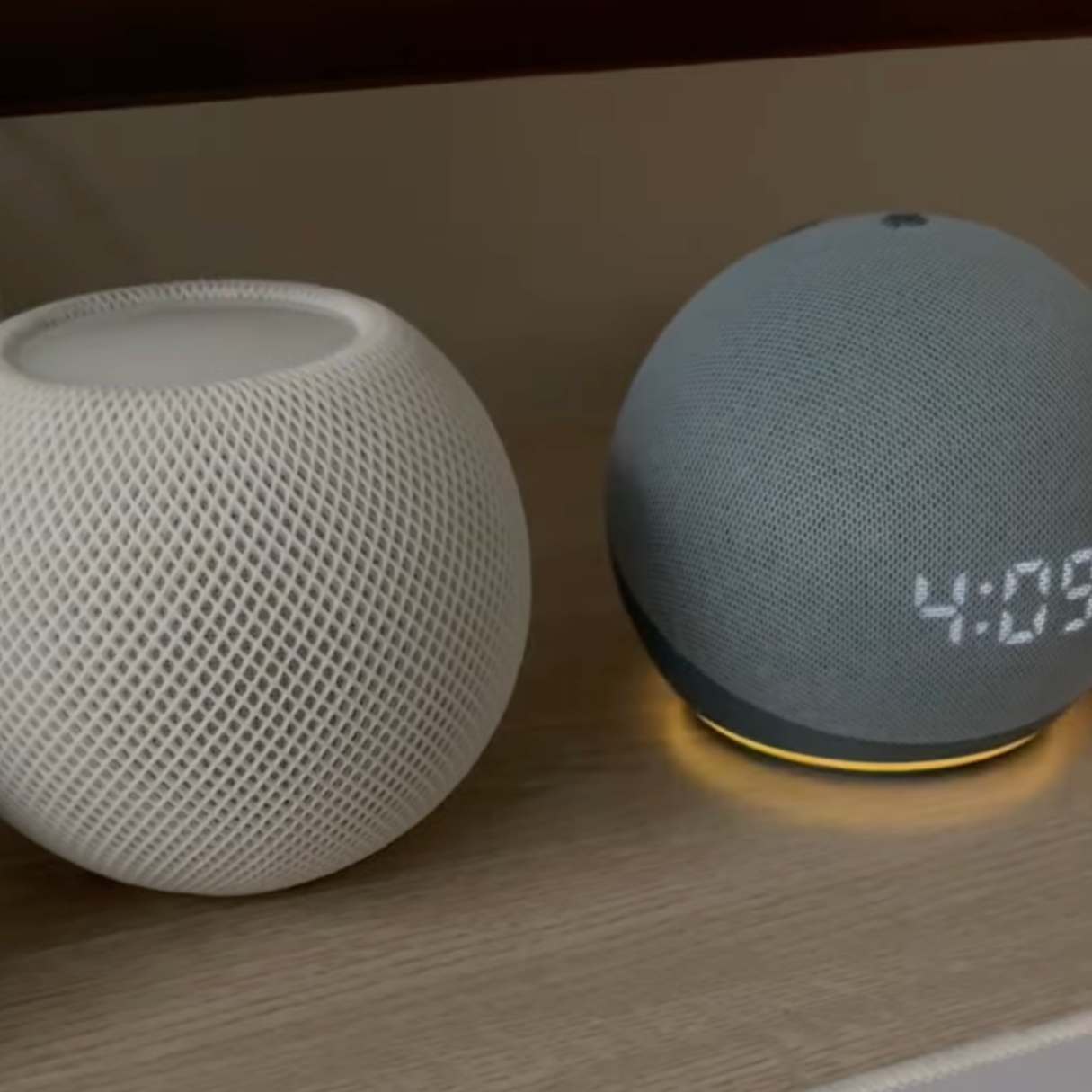Home>Home Appliances>Home Automation Appliances>Which One Is Better: Alexa Or Siri?


Home Automation Appliances
Which One Is Better: Alexa Or Siri?
Published: January 1, 2024
Discover the best home automation appliances with a comparison of Alexa and Siri. Find out which one is better suited for your needs. Explore the possibilities today!
(Many of the links in this article redirect to a specific reviewed product. Your purchase of these products through affiliate links helps to generate commission for Storables.com, at no extra cost. Learn more)
Introduction
In the realm of smart home automation, virtual assistants play a pivotal role in simplifying daily tasks, providing entertainment, and enhancing overall convenience. Among the most prominent virtual assistants are Amazon's Alexa and Apple's Siri. These AI-powered companions have revolutionized the way we interact with technology, allowing us to control various devices, access information, and perform a myriad of functions through voice commands.
As the competition between these two giants intensifies, consumers are often left pondering: Which one is better, Alexa or Siri? To shed light on this question, it's essential to delve into the distinctive features, performance, integration capabilities, language support, and privacy aspects of both Alexa and Siri. By examining these facets, we can gain a comprehensive understanding of their respective strengths and weaknesses, ultimately aiding individuals in making an informed decision based on their specific needs and preferences.
Let's embark on a captivating journey through the intricacies of Alexa and Siri, unraveling their unique attributes and exploring the nuances that set them apart. Whether you're a tech enthusiast, a smart home aficionado, or simply someone intrigued by the wonders of AI, this exploration will equip you with the knowledge to discern which virtual assistant aligns with your lifestyle and requirements. So, without further ado, let's delve into the world of Alexa and Siri, unraveling their capabilities and charting a course to determine the superior virtual assistant.
Key Takeaways:
- Alexa excels in smart home control and customization, making it ideal for those who want seamless integration and personalized experiences with a wide range of devices.
- Siri shines in seamless synchronization across Apple devices, multilingual support, and robust privacy features, appealing to users invested in the Apple ecosystem and prioritizing privacy and security.
Read more: Who Is Better: Google, Alexa, Or Siri
Features of Alexa
Amazon's Alexa, renowned for its seamless integration with a plethora of smart home devices, boasts an array of features that elevate the user experience. At its core, Alexa serves as a multifaceted virtual assistant, capable of executing an extensive range of tasks with remarkable efficiency. Here are some of the standout features that define Alexa:
- Voice Control: Alexa’s proficiency in understanding natural language commands empowers users to control smart home devices, play music, set reminders, and perform various other tasks through voice interactions.
- Skills and Customization: Alexa’s versatility is amplified through its wide array of skills, which are essentially voice-activated apps that enable users to tailor their Alexa experience based on their preferences and interests.
- Smart Home Integration: Alexa serves as the central hub for smart home control, seamlessly connecting and managing compatible devices such as lights, thermostats, security cameras, and more.
- Entertainment Hub: From streaming music and audiobooks to controlling smart TVs and accessing a myriad of entertainment options, Alexa transforms into a comprehensive entertainment hub at the user’s command.
- Information Access: Alexa’s ability to provide real-time weather updates, news briefings, traffic reports, and answers to a diverse range of queries positions it as an invaluable source of information.
These features collectively underscore Alexa’s prowess as a versatile and intuitive virtual assistant, catering to the diverse needs of users and seamlessly integrating into their daily lives. Whether it’s orchestrating smart home automation, delivering personalized content, or serving as an information repository, Alexa’s capabilities are designed to streamline tasks and enhance overall convenience.
Features of Siri
Apple’s Siri, a pioneering virtual assistant, is renowned for its integration across Apple devices and its proficiency in executing an array of tasks with finesse. Siri’s capabilities extend beyond conventional voice commands, offering a suite of features designed to enrich the user experience. Here are some of the standout features that define Siri:
- Device Integration: Siri’s seamless integration across Apple devices, including iPhones, iPads, Macs, and HomePods, ensures a cohesive user experience, allowing for effortless continuity and synchronization.
- Natural Language Processing: Siri’s adeptness in processing natural language commands enables users to perform tasks such as setting reminders, sending messages, making calls, and initiating device actions through intuitive voice interactions.
- Personal Assistant Capabilities: Siri excels in managing schedules, setting alarms, creating reminders, and accessing personalized information, serving as a dependable virtual assistant for organizing daily tasks.
- Multilingual Support: Siri’s multilingual capabilities enable users to interact with the virtual assistant in various languages, catering to a diverse global audience and facilitating seamless communication.
- Contextual Awareness: Siri’s ability to understand context and learn user preferences contributes to personalized and adaptive interactions, enhancing its effectiveness in catering to individual needs.
These features encapsulate Siri’s role as a versatile and intuitive virtual assistant, deeply ingrained within the Apple ecosystem and adept at orchestrating a myriad of tasks with precision. Whether it’s managing daily activities, facilitating seamless device interactions, or delivering multilingual support, Siri’s capabilities are tailored to elevate user convenience and streamline the integration of smart technology into everyday life.
Comparison of Alexa and Siri
When evaluating the capabilities of Alexa and Siri, it’s essential to juxtapose their features and performance to discern the nuances that distinguish these virtual assistants. Both Alexa and Siri exhibit remarkable prowess in executing tasks and catering to user needs, yet certain differentiating factors set them apart. Let’s delve into a comparative analysis to unravel the distinctive attributes of Alexa and Siri:
- Device Ecosystem: Alexa boasts extensive compatibility with a wide range of smart home devices, offering unparalleled flexibility and integration options. In contrast, Siri excels in seamless integration across Apple devices, fostering a cohesive ecosystem within the Apple product lineup.
- Customization and Skills: Alexa’s vast array of skills and customization options empowers users to tailor their experience with an extensive selection of voice-activated apps, providing a highly personalized interaction. While Siri’s capabilities are deeply integrated into the Apple ecosystem, its customization options are more streamlined, offering a cohesive experience across devices.
- Language Support: Siri’s multilingual support caters to a global audience, enabling users to interact with the virtual assistant in diverse languages, thereby fostering inclusivity. Alexa’s language support, while extensive, may not encompass the same breadth of linguistic diversity as Siri.
- Contextual Understanding: Siri’s contextual awareness and ability to learn user preferences contribute to personalized interactions, adapting to individual needs and enhancing the overall user experience. Alexa, while proficient in executing a myriad of tasks, may exhibit a more structured approach in certain interactions.
While both Alexa and Siri excel in their respective domains, their unique attributes cater to distinct user preferences and usage scenarios. Alexa’s expansive smart home integration and customization options position it as a versatile companion for home automation enthusiasts, while Siri’s seamless integration across Apple devices and multilingual support underscore its adaptability and cohesiveness within the Apple ecosystem.
By comprehensively assessing the comparative strengths of Alexa and Siri, individuals can make informed decisions based on their specific requirements, device preferences, and interaction preferences, ensuring that they harness the full potential of these groundbreaking virtual assistants.
Performance and Accuracy
When evaluating the performance and accuracy of virtual assistants such as Alexa and Siri, several key factors come into play, influencing their effectiveness in executing tasks and comprehending user commands. Both Alexa and Siri have made significant strides in refining their performance and enhancing their accuracy, yet certain distinctions merit consideration.
Alexa’s Performance and Accuracy: Amazon’s Alexa has garnered acclaim for its swift responsiveness and adeptness in executing a diverse range of tasks, from controlling smart home devices to retrieving information and managing daily schedules. The seamless integration with an extensive array of smart home devices contributes to Alexa’s robust performance, enabling users to orchestrate their smart home ecosystem with remarkable efficiency. Moreover, Alexa’s natural language processing capabilities have been fine-tuned to comprehend a wide spectrum of voice commands, contributing to its accuracy and responsiveness in executing user requests.
Siri’s Performance and Accuracy: Apple’s Siri, deeply ingrained within the Apple ecosystem, exhibits commendable performance and accuracy, particularly in its seamless synchronization across Apple devices. Siri’s proficiency in understanding natural language commands and executing device-specific actions contributes to its effectiveness in managing daily tasks and facilitating intuitive interactions. Furthermore, Siri’s contextual awareness and adaptability enhance its accuracy, enabling it to cater to personalized user preferences and deliver tailored responses with precision.
Both Alexa and Siri have demonstrated a commitment to refining their performance and bolstering their accuracy through continuous advancements in natural language processing, machine learning, and user interaction analysis. As a result, users can expect a high degree of reliability and efficiency when leveraging these virtual assistants to streamline tasks and access information.
Ultimately, the performance and accuracy of Alexa and Siri are reflective of their ongoing evolution and the concerted efforts to enhance user experiences. Whether it’s commanding smart home devices, accessing information, or managing daily activities, both virtual assistants strive to deliver seamless performance and unwavering accuracy, enriching the lives of users and simplifying their interaction with technology.
Consider your specific needs and preferences when choosing between Alexa and Siri. Alexa is known for its wide range of compatible smart home devices, while Siri is deeply integrated into the Apple ecosystem. Choose the one that best fits your lifestyle and devices.
Read more: Alexa Or Google Home: Which Is Better
Integration with Other Devices
The integration capabilities of virtual assistants play a pivotal role in shaping the smart home experience, facilitating seamless interactions with a diverse array of devices and technologies. Both Alexa and Siri have made significant strides in fostering integration with various devices, offering users the flexibility to control and manage their interconnected ecosystem. Let’s delve into the integration capabilities of Alexa and Siri to discern the distinct advantages they offer:
Alexa’s Integration with Other Devices: Amazon’s Alexa has established itself as a formidable hub for smart home integration, boasting compatibility with an extensive range of devices spanning lighting systems, thermostats, security cameras, entertainment systems, and more. The breadth of Alexa’s compatibility enables users to orchestrate their smart home environment with unparalleled flexibility, seamlessly controlling and managing an array of interconnected devices through intuitive voice commands. Furthermore, Alexa’s open platform fosters collaboration with third-party manufacturers, expanding its compatibility and ensuring a diverse ecosystem of supported devices.
Siri’s Integration with Other Devices: Apple’s Siri, deeply entrenched within the Apple ecosystem, excels in fostering seamless integration across a spectrum of Apple devices, including iPhones, iPads, Macs, and HomePods. This cohesive integration ensures a harmonious user experience, allowing for effortless continuity and synchronization across devices. Siri’s compatibility with HomeKit-enabled devices further enhances its integration capabilities, enabling users to control and manage smart home devices with remarkable ease and precision, leveraging Siri as the central command hub within the Apple ecosystem.
Both Alexa and Siri exhibit commendable integration capabilities, each catering to distinct user preferences and device ecosystems. Alexa’s expansive compatibility with third-party devices and its role as a versatile smart home orchestrator position it as an ideal choice for users seeking extensive device integration options. Conversely, Siri’s seamless synchronization across Apple devices and its compatibility with HomeKit-enabled devices underscore its adaptability and cohesiveness within the Apple ecosystem, appealing to users invested in the Apple product lineup.
By harnessing the integration capabilities of Alexa and Siri, users can orchestrate their smart home environment with unparalleled convenience, leveraging the prowess of these virtual assistants to streamline interactions with a diverse array of interconnected devices and technologies.
Language Support
Language support plays a pivotal role in ensuring that virtual assistants cater to a diverse global audience, fostering inclusivity and facilitating seamless communication in various linguistic contexts. Both Alexa and Siri have made significant strides in offering multilingual capabilities, enabling users to interact with these virtual assistants in their preferred languages. Let’s explore the language support offered by Alexa and Siri to discern the breadth of their multilingual capabilities:
Alexa’s Language Support: Amazon’s Alexa has expanded its language support to encompass a wide array of languages, catering to a diverse global audience. Users can interact with Alexa in languages such as English, Spanish, French, German, Italian, Japanese, and more, fostering a multilingual environment that accommodates varied linguistic preferences. This extensive language support enhances Alexa’s accessibility and ensures that users across different regions can engage with the virtual assistant in their native languages, fostering seamless communication and interaction.
Siri’s Language Support: Apple’s Siri, renowned for its global presence, offers multilingual support, enabling users to engage with the virtual assistant in numerous languages, including but not limited to English, Spanish, French, German, Italian, Japanese, and Mandarin Chinese. Siri’s multilingual capabilities cater to a diverse user base, empowering individuals to communicate with the virtual assistant in their preferred languages, thereby fostering a personalized and inclusive interaction experience.
The multilingual capabilities of both Alexa and Siri underscore their commitment to inclusivity and accessibility, ensuring that users can engage with these virtual assistants in languages that resonate with their cultural and linguistic backgrounds. Whether it’s issuing voice commands, seeking information, or managing tasks, the multilingual support offered by Alexa and Siri enriches the user experience and fosters seamless communication across diverse linguistic landscapes.
Privacy and Security
Privacy and security are paramount considerations in the realm of virtual assistants, underpinning user trust and confidence in the handling of personal data and interactions. Both Alexa and Siri have implemented robust measures to safeguard user privacy and ensure the security of sensitive information. Let’s delve into the privacy and security features offered by Alexa and Siri to discern the measures in place to protect user data and interactions:
Alexa’s Privacy and Security: Amazon’s Alexa prioritizes user privacy and data security through stringent privacy controls and encryption protocols. Users have granular control over their privacy settings, enabling them to manage voice recordings, review and delete stored interactions, and configure privacy preferences to align with their comfort levels. Additionally, Alexa employs robust encryption mechanisms to secure data transmission and storage, bolstering the confidentiality and integrity of user information.
Siri’s Privacy and Security: Apple’s Siri is synonymous with a steadfast commitment to user privacy, leveraging on-device processing and anonymization to protect user data. Siri’s privacy features encompass anonymizing voice recordings, offering transparent privacy settings, and implementing end-to-end encryption to safeguard user interactions. Apple’s stringent privacy policies and the integration of privacy-preserving technologies underscore Siri’s dedication to upholding user privacy and fortifying the security of personal data.
Both Alexa and Siri have demonstrated a resolute commitment to prioritizing user privacy and fortifying the security of interactions. By implementing robust encryption, transparent privacy controls, and anonymization measures, these virtual assistants strive to instill confidence in users, assuring them that their privacy and security are paramount considerations in the design and deployment of these AI-powered companions.
Ultimately, the privacy and security features embedded within Alexa and Siri serve as a testament to the unwavering dedication to safeguarding user data and interactions, fostering a trusted and secure environment for users to engage with these virtual assistants.
Conclusion
The comparison of Alexa and Siri unveils the distinctive attributes and capabilities that define these pioneering virtual assistants, shedding light on their respective strengths and nuances. As individuals navigate the landscape of smart home automation and seek an intuitive virtual companion, the choice between Alexa and Siri hinges on an array of factors, including device ecosystem preferences, language support, integration capabilities, performance, and privacy considerations.
Alexa’s prowess as a versatile smart home orchestrator, coupled with its expansive device compatibility and customization options, positions it as an ideal choice for individuals seeking seamless integration and extensive smart home control. Siri, deeply entrenched within the Apple ecosystem, excels in fostering seamless synchronization across Apple devices, multilingual support, and robust privacy features, appealing to users invested in the Apple product lineup and prioritizing privacy and security.
Ultimately, the decision between Alexa and Siri is inherently personal, contingent on individual preferences, device ecosystems, and interaction dynamics. Whether it’s the seamless orchestration of smart home devices, the multilingual support, or the commitment to privacy and security, both Alexa and Siri have redefined the user experience, empowering individuals to interact with technology in more intuitive and personalized ways.
As the realm of virtual assistants continues to evolve, Alexa and Siri stand as emblematic embodiments of innovation and user-centric design, enriching the lives of users and shaping the future of smart home automation. Whether it’s commanding smart devices, accessing information, or managing daily tasks, the journey with Alexa and Siri is a testament to the transformative potential of AI-powered companions, enhancing convenience and connectivity in the digital age.
Frequently Asked Questions about Which One Is Better: Alexa Or Siri?
Was this page helpful?
At Storables.com, we guarantee accurate and reliable information. Our content, validated by Expert Board Contributors, is crafted following stringent Editorial Policies. We're committed to providing you with well-researched, expert-backed insights for all your informational needs.















0 thoughts on “Which One Is Better: Alexa Or Siri?”